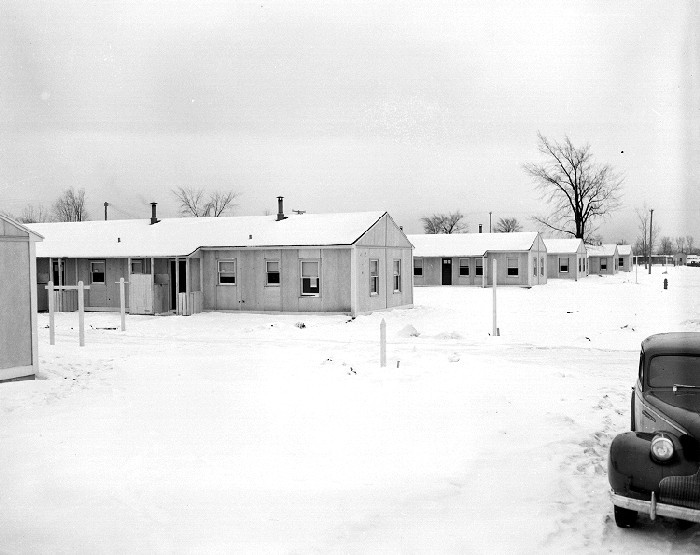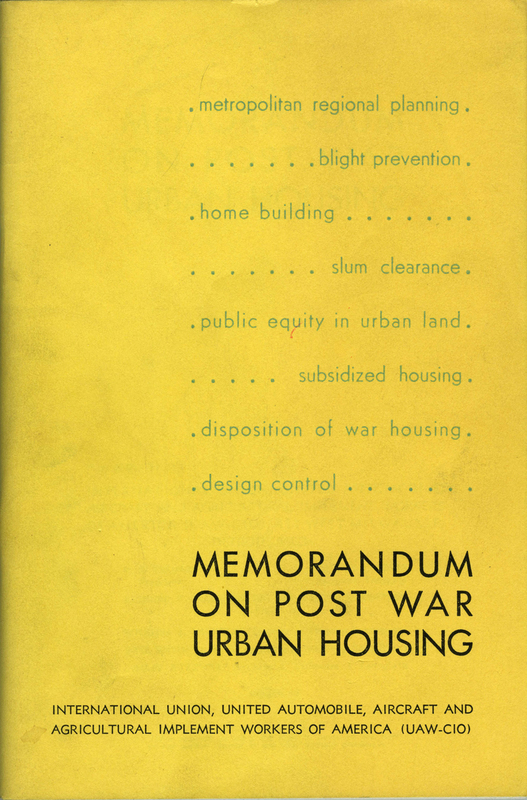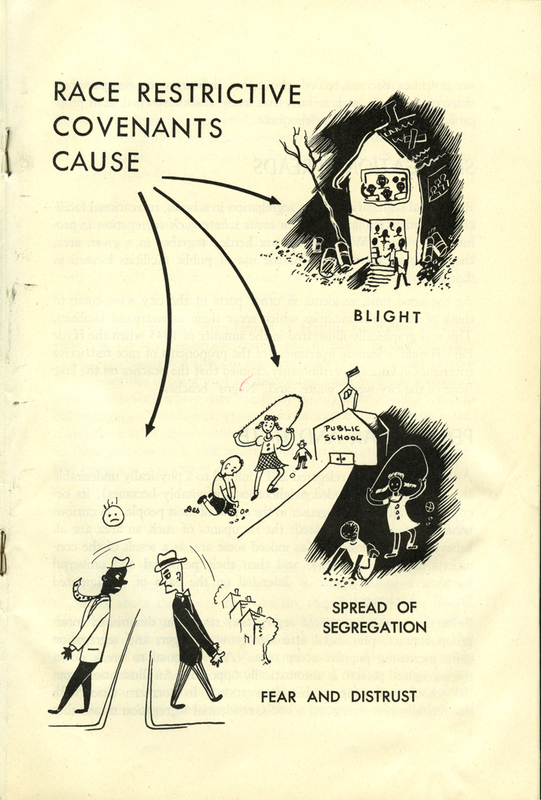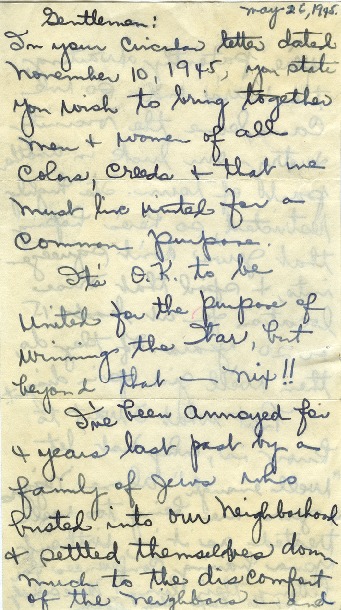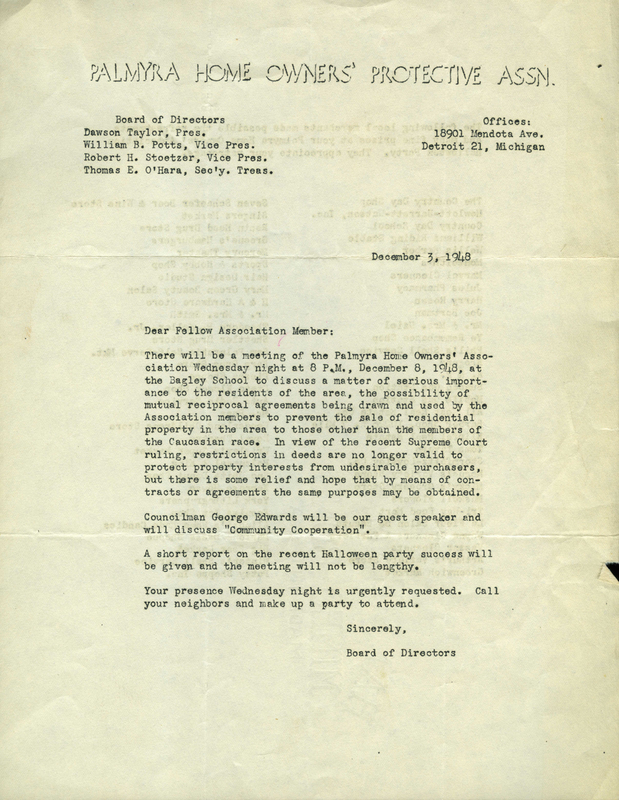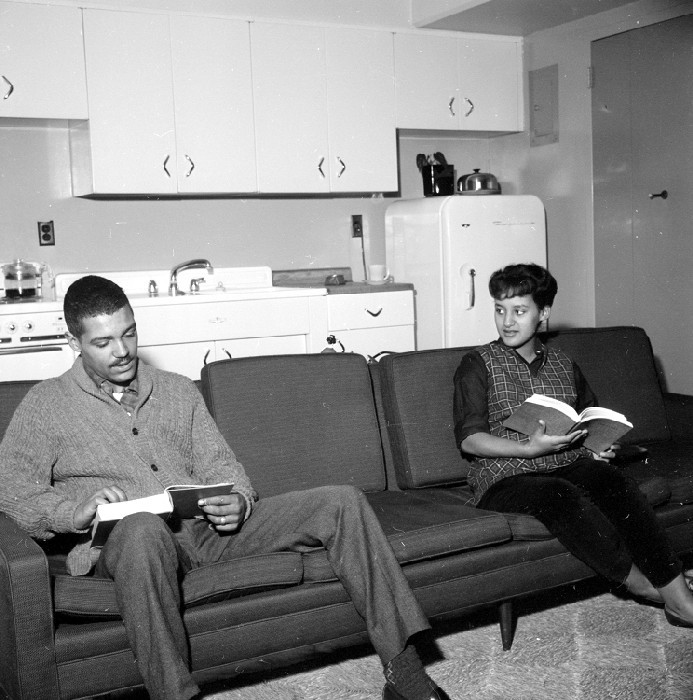Post-War Detroit
Wartime housing shortages and inconsistent integration increased the number of substandard dwellings for Black Detroiters, which were overcrowded and a lacked basic city services like functioning gas and sewer lines. Significant obstacles prevented Black people from seeking decent, affordable homes in Detroit, including property covenants restricting where Black people could live, homeowner protective associations preventing minorities from purchasing homes in certain areas, and general pressure to meet an invisible standard of acceptability for access to public housing projects.
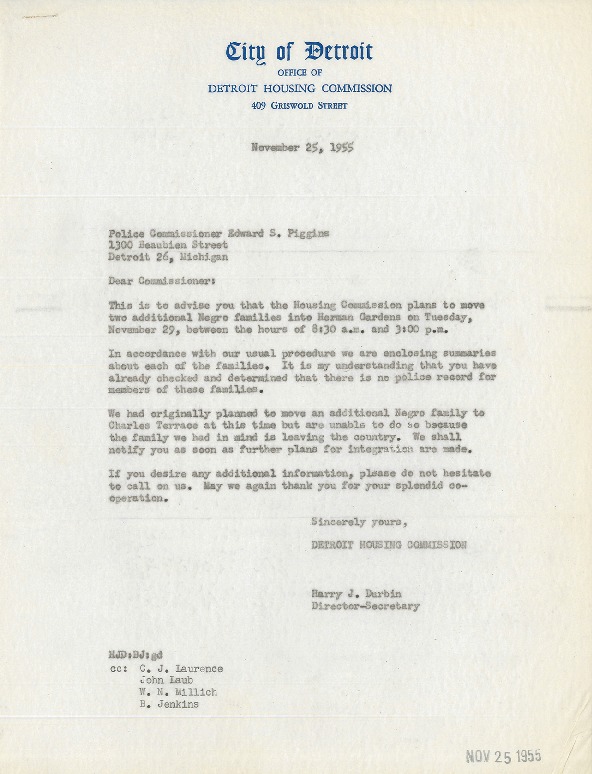
A letter from Detroit Housing Commission Secretary Harry J. Durbin informs Detroit Police Commissioner Edward S. Piggins that the commission will be moving Black families into the Herman Gardens Housing Project and assures him of the families’ wholesomeness. November 25, 1955. Detroit Commission on Community Relations (DCCR)/Human Rights Department Records, Part 3, Box 27. Click the image to read the full document.

